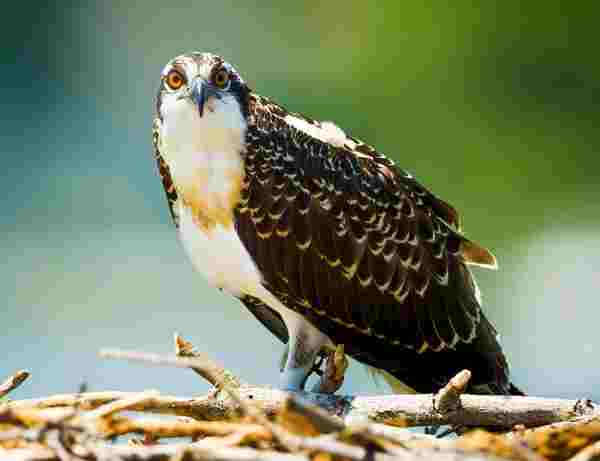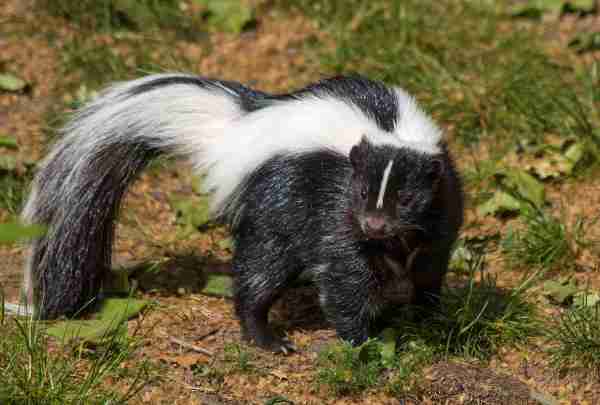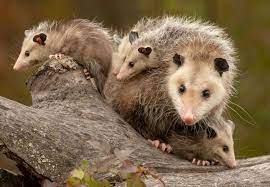In the intricate tapestry of the natural world, there exist countless examples of symbiotic relationships, unexpected adaptations, and ingenious survival strategies. One such intriguing phenomenon is the consumption of eggshells by various animals, a fascinating aspect of nature often overlooked.
While eggs are a staple in the diets of many creatures, it might come as a surprise that some animals not only relish the nutrient-rich contents but also see value in the seemingly discarded shells.
Table of Contents
In this article, we embark on a journey into the captivating realm of animals that eat eggshells. These remarkable creatures, ranging from birds to insects, employ unique tactics to harness the benefits of these calcium-rich structures. From bolstering their own health to contributing to ecosystem balance, these eggshell consumers play a vital role in the circle of life. Join us as we uncover the secrets behind their intriguing dietary choices and gain a deeper appreciation for the ingenious ways life adapts and thrives in the natural world.
The Role of Eggshells in the Environment
Eggshells, often overlooked, are key players in the grand theater of the environment. These seemingly inert remnants serve as essential components of various ecological processes.
Firstly, eggshells contribute to nutrient cycling. Composed mainly of calcium carbonate, they slowly break down in the environment, releasing calcium, a vital nutrient for plants. This calcium enrichment benefits nearby flora, aiding in their growth and health.
Moreover, eggshells can serve as nest material for birds and reptiles. Many species use crushed eggshells to line their nests, providing insulation and protection for their offspring. This reuse not only conserves resources but also highlights the resourcefulness of nature’s recycling system.
Overview Of Animals That Eat Egg Shells
Birds of Prey:

Birds of prey, including majestic eagles, fierce hawks, and stealthy owls, are renowned for their hunting prowess. In their pursuit of sustenance, these raptors often raid the nests of other birds, where they encounter a protein-rich delicacy – bird eggs. When feasting on these eggs, raptors don’t discriminate; they consume both the contents and the shells, which provide a valuable source of calcium for their own health and the development of strong eggshells for their own nests. This practice helps maintain the delicate balance of ecosystems as they regulate the populations of various bird species.
Corvids:

Members of the corvid family, which includes the intelligent and resourceful crows and ravens, are known for their omnivorous diets. Among the many food items on their menu are the eggs of other birds. When corvids discover a nest, they skillfully crack open the eggs and consume the contents, shells included. These opportunistic feeders are not only contributing to their own nutrition but also demonstrating their adaptability to varying food sources, ensuring their survival in diverse environments.
Gulls:

Seagulls, with their distinct calls and coastal habitats, are opportunistic feeders. They scavenge and forage for a wide range of food, including the eggs of other birds. When seagulls locate a nest, they break open the eggs and consume both the nutritious contents and the shells. This behavior is especially prominent in gull colonies where food competition is high during the breeding season. By consuming eggshells, seagulls obtain calcium for their own needs and help control the populations of various bird species in coastal and marine ecosystems.
Raccoons:

Raccoons, often recognized by their distinctive masks and bushy tails, are notorious for their opportunistic and omnivorous diets. They possess the dexterity to raid the nests of birds and reptiles, where they eagerly consume eggs, shells, and all. Raccoons are known to be skilled foragers and climbers, allowing them to access nests high in trees or hidden in shrubs. When consuming eggshells, they not only benefit from the calcium content but also help regulate the populations of ground-nesting birds and reptiles, contributing to the ecological balance of their habitats.
Skunks:

Skunks, with their distinctive black and white coloring, are omnivorous creatures with a diverse diet that includes insects, small mammals, fruits, and eggs. During the breeding seasons of ground-nesting birds and reptiles, skunks become opportunistic egg predators. They forage for nests and consume both the contents and shells of eggs they discover. The calcium-rich eggshells provide a valuable source of nutrition for skunks, especially during times when other food sources may be scarce. By eating eggshells, skunks play a role in regulating the populations of various bird and reptile species, contributing to the ecological dynamics of their habitats.
Opossums:

Opossums, often called nature’s clean-up crew, have an opportunistic and varied diet that includes fruits, insects, small vertebrates, and eggs. When opossums come across nests containing eggs, they are not averse to dining on both the egg contents and shells. Their omnivorous nature allows them to adapt to seasonal food availability, and during the breeding seasons of birds and reptiles, eggs can become a substantial part of their diet. By consuming eggshells, opossums gain calcium and other nutrients while helping to control the populations of ground-nesting species.
Snakes:

Some snake species have developed a specialized diet that includes bird eggs, and when they consume eggs, they ingest both the contents and shells. Eastern Rat Snakes, for example, are known to eat bird eggs, and their powerful jaws and digestive systems allow them to effectively process both the nutritious egg yolk and the calcium-rich shells. Snakes that feed on eggs play a role in regulating the populations of birds, particularly those that nest in tree cavities or on the ground. This interplay between snakes and birds contributes to the ecological balance of the ecosystems they inhabit.
Ants:

Ants, typically regarded as scavengers and foragers, may occasionally consume eggshells when they come across them. While not a primary food source, eggshells can provide a source of calcium for ants. In some cases, ants may gather small pieces of eggshell to incorporate into their nests, where they can serve as a structural element or a source of minerals for the colony. Their interactions with eggshells are typically incidental, as they primarily forage for other food sources.
Turtles and Tortoises:

Turtles and tortoises are primarily herbivorous reptiles, but their diets can occasionally include other food items, such as insects, small vertebrates, and fruits. When they come across the remnants of bird or reptile eggs in their natural habitat, they may consume the eggs and their shells. The calcium in the eggshells can benefit their health, particularly during the breeding season. While eggshells are not a staple in their diets, they serve as a supplementary source of nutrition and minerals for these reptiles.
Role of Eggshell Consumption in Animal Diets
Animals that consume eggshells, known as carnivores, have evolved unique dietary adaptations. The eggshell’s calcium content is a valuable nutrient for these creatures, aiding in bone and eggshell formation. For instance, some birds, like the Northern Fulmar, eat eggshells to replenish the calcium lost during egg-laying. Similarly, land snails consume crushed eggshells to bolster their own calcium supplies, essential for building their shells. This dietary choice showcases nature’s ingenuity in nutrient acquisition, emphasizing the interconnectedness of species within ecosystems.
Ethical Considerations
While eggshell consumption by animals is a natural phenomenon, ethical considerations arise when humans intervene. The collection of eggshells from the wild for commercial purposes can disrupt natural ecosystems and harm local wildlife populations. Conservationists and ecologists must carefully assess the ethical implications of such activities and develop sustainable practices to minimize ecological impacts.
Final Words
Eggshells, often dismissed as insignificant, reveal their true significance in the environment and animal diets. They contribute to nutrient cycling, provide essential calcium, and even serve as nesting materials. However, the ethical dimensions of harvesting eggshells for human use require careful consideration. Understanding the multifaceted roles of eggshells in nature underscores the intricate web of life and the need for responsible stewardship of our natural resources.
Reference:
- https://www.dogsnaturallymagazine.com/can-dogs-eat-eggshells/
- https://www.tortoisetrust.org/articles/webdiet.htm
- https://www.quora.com/Why-do-snakes-also-eat-the-egg-shells-when-eating-eggs-Wouldnt-it-be-way-easier-to-crack-the-egg-open-and-slurp-up-the-contents

Zahra Makda
Growing up enjoying the beauty of my village, a good passion for nature developed in me from childhood. Following my passion for the natural world, I have chosen zoology for my graduation, during my undergraduate degree, I participated in many nature trails, bird watching, rescues, training for wildlife conservation, workshop, and seminars on biodiversity. I have a keen interest in invertebrate biology, herpetology, and ornithology. Primary interests include studies on taxonomy, ecology, habitat and behavior.









